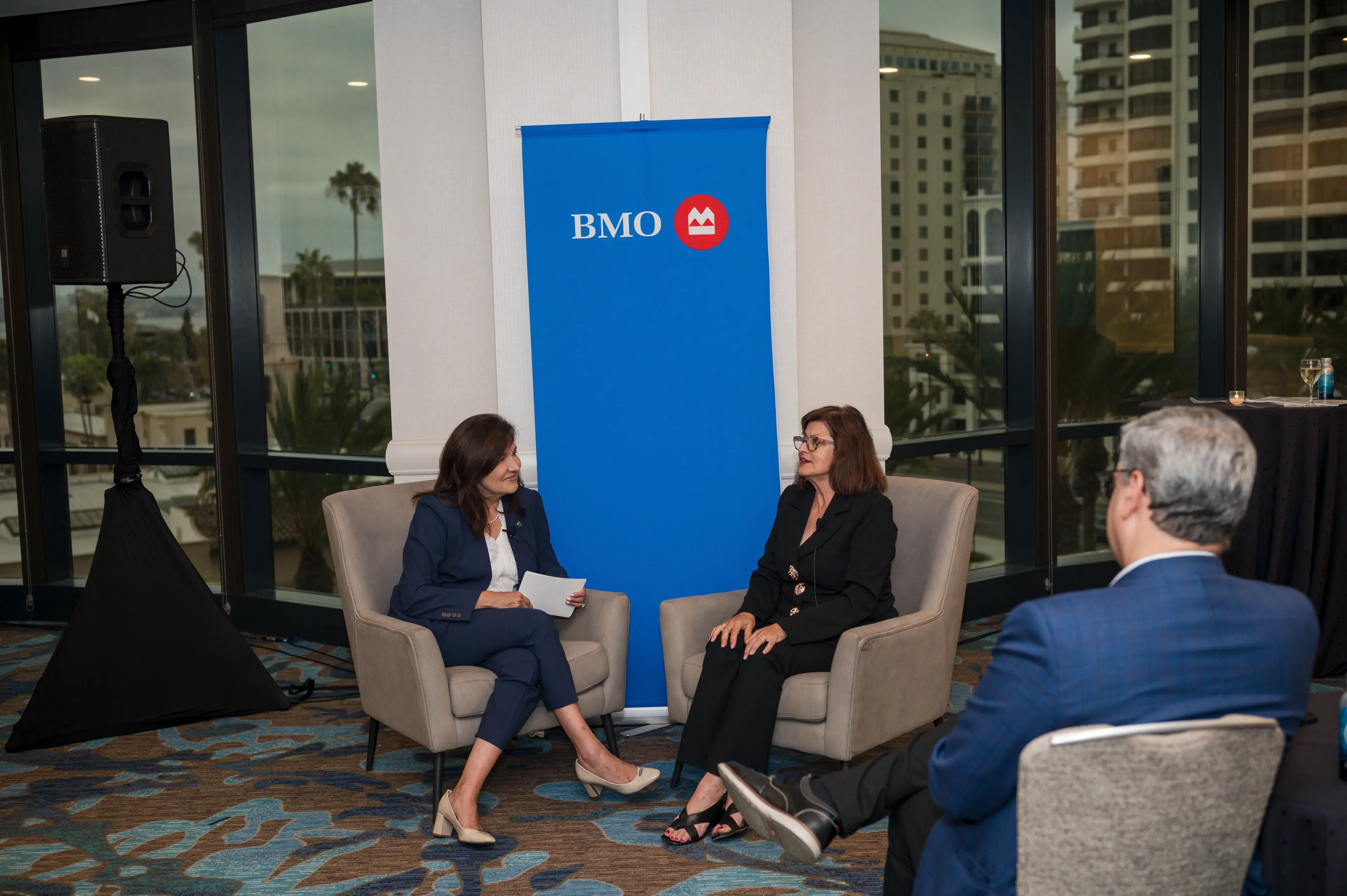Martha de la Torre describes herself as a “reluctant entrepreneur,” but to everyone else, she’s seen as a powerful advocate for the Latino community. As the CEO of EC Hispanic Media and co-founder of El Clasificado, she has transformed a humble Spanish-language classified ad publication into the largest classified marketplace for Hispanic people in the U.S.
De la Torre’s entrepreneurial journey began in 1988 with a simple idea: develop a “Pennysaver in Spanish” to serve the growing Hispanic community. “There was nothing free for Latinos to find jobs, rentals or cars,” she said. “I kept saying someone should do it, and people told me, ‘Well, you do it.’”
The Latino Leaders Index500, powered by BMO, aims to better understand the needs of this key economic segment and help investors recognize the economic muscle and potential of Latino businesses.
Listen to our 12-minute podcast:
Markets Plus is live on all major channels including Apple, and Spotify.
Start listening to our library of award-winning podcasts.
Reading the trends
Maria Salinas, CEO of the Los Angeles Area Chamber of Commerce, was the ideal person to lead the conversation with de la Torre. Not only does Salinas oversee the largest business association in LA County, but she’s also the first woman and Latina to lead the Chamber in its 136-year history. Given EC Hispanic Media works directly with Latino businesses, Salinas wanted to know what de la Torre sees as the best way to tap into the Latino market. “You have to know your audience and present yourself accordingly,” she said.
Building businesses up
For de la Torre, the key to her success has been helping small businesses grow, offering business webinars and expos in Spanish, and working with different Chambers of Commerce to learn about and grow her network. She explained that her company’s mission has always been to find ways to help clients get more clients and build an audience for them in print and online.Other agencies might require clients to spend at least $10,000 a month, which is out of reach for many of de la Torre’s customers, but EC Hispanic Media finds ways to serve the community for a fraction of the cost. One way she’s doing this is through artificial intelligence (AI). “We’ve already incorporated AI when people are placing ads,” she said. She’s encouraging designers to use it to generate ideas. “Some of our employees are reluctant, and I tell them, ‘Learn to use this because you will produce more, and it will provide more job security.’”
Helping the next generation
To wrap up the Fireside Chat, Salinas asked de la Torre for her advice for other Latino leaders. She responded by touting the benefits of attending conferences and connecting with the local Chamber of Commerce to network and learn from others – including competitors. “I go to conferences with competitors, and we learn from each other,” she said. “It’s a neutral place, and it makes you better.”Salinas echoed that sentiment and said those events help lift the whole community. “We have members that are like, ‘Oh, I don’t need those resources,’ but how about showing others how you got to that next level,” she said. These events are particularly beneficial for young rising stars to go and absorb information from everyone in the room.De la Torre agreed. “There are so many Latino businesses that you can network with now and learn from each other.”
